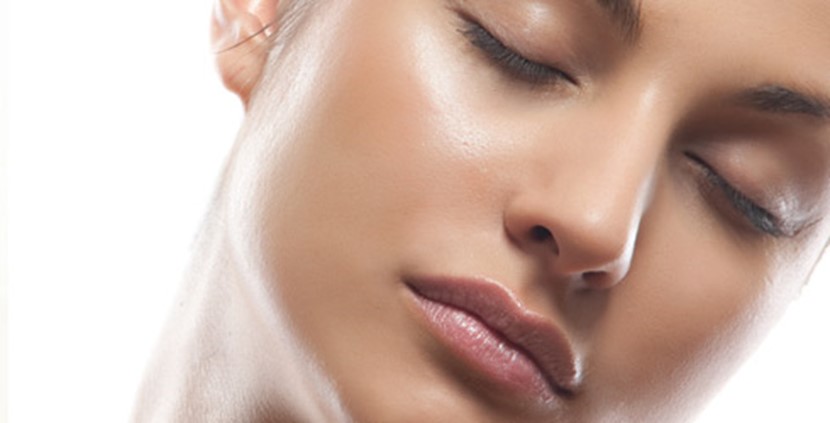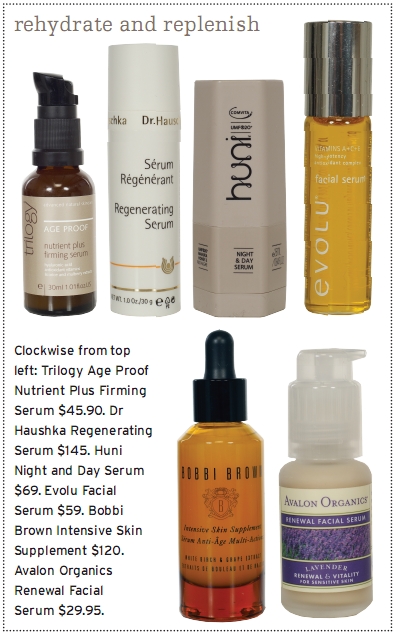The low down on facial serums

Is your skin dull and dry from winter weather? Then you may need a serum
to help brighten and rehydrate it.
Did you spend winter alternately hugging the heater and braving the freezing wind as you attempt to make it to the letterbox without falling victim to hypothermia? All right, maybe I'm exaggerating, but the fact is, winter weather - despite the relentless downpour of moisture in its many forms - dries your skin right out. And your face, which is probably the one body part you have to expose to the elements, takes the brunt of the torture. When spring finally arrives, you may be looking in the mirror and asking yourself, "Why isn't my face dewy and glowing like the flowers blooming outside?"
When your skin's been starved of moisture for so many months, you might need to call in the reinforcements. And a good serum is a great way to start replenishing and repairing your skin.
What is a serum?
Serums are highly concentrated products containing a massive amount of active ingredients - some have up to 70%, when "regular" moisturisers have around 5-10%. They act as super-moisturisers, and their active ingredients depend on what the serum is specifically designed to do. Some are anti-ageing, some help balance the skin's natural oils so to reduce breakouts, some help to improve the texture and elasticity of the skin.
How to choose a serum that's right for your skin
There is no one-size-fits-all serum out there, so you'll need to think about what you want your particular serum to do for your skin, then seek out a product that matches your requirements. Evolu Facial Serum ($69) contains vitamins A, C, E, and K to fight the free radicals that can contribute to the signs of ageing, while Trilogy Age Proof Nutrient Plus Firming Serum ($45.90) contains high levels of hyaluronic acid, which is known for its hydrating qualities. Steer clear of synthetic perfumes, which can cause allergic reactions; mineral oil, which can exacerbate redness and stress in your skin; and alcohol, which dries skin out.
When and how to use it
It's best to follow the individual directions on each serum, but it's good to apply a serum between the toning and moisturising steps in your normal skincare regime. Use them underneath your night moisturiser, because then they'll have a better chance to sink into your skin and do their job when all that you're facing is a pillow. Since serums are highly concentrated, you will only need to use a very small amount - only a drop or two will do the trick.


AS FEATURED IN ISSUE 7 OF OHbaby! MAGAZINE. CHECK OUT OTHER ARTICLES IN THIS ISSUE BELOW

















